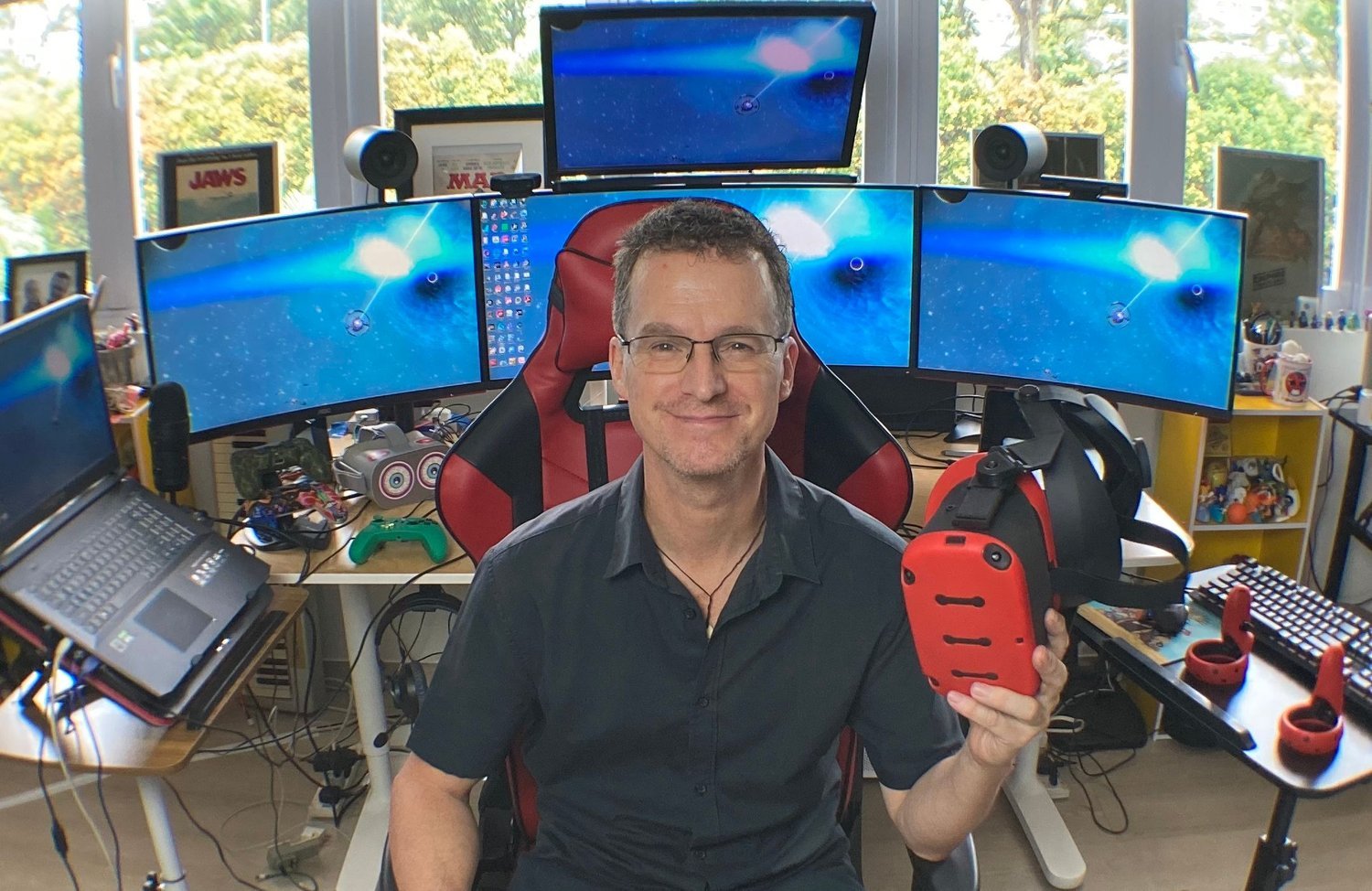Don Anderson’s Quest to Ensure the Metaverse Isn’t Dominated by the West
The metaverse gives everyone a chance to avoid the mistakes of the Internet, the Asian Metaverse Society co-founder believes

above: Don Anderson
Three decades ago, Don Anderson, head of the Asia Metaverse Society, received some prescient advice from his music teacher Mrs. Snowden. While he thought it weird at first that she told him he’d do a lot of different things in his career, 30 years later she’s been proven correct.
In a work life that’s spanned engineering, print media, digital design, broadcasting, creative agency work and being the APAC content partnership lead at YouTube, Anderson is now set on making the metaverse open and welcoming to everyone. He certainly has his sights set on a lucrative niche of the web3 world, with consultancy McKinsey estimating that $177 billion has already been invested in the metaverse, which could reach $5 trillion of economic value by 2030.
It started for him in 2014 when he began attending virtual reality (VR) meetups. “I remember joining one hybrid meetup held by AsiaVR Association co-founder Tee Jia Hen in Singapore where developers from around the region including China and Australia met to share their demos in a virtual space,” he said to me recently. “Those joining from overseas in the form of floating avatars in a very rudimentary virtual meeting space [were] featured on computer monitors for the rest of us non-device users could see.”
Soon after, Anderson, who is originally from Canada, co-founded the AsiaVR Association with Jia Hen. His “ah ha” moment came soon after when that same year Facebook (now Meta) said it would acquire the VR company Oculus for $2 billion.
“That really set things in motion,” he said. “For the industry, after so many false starts over the preceding 20 to 30 years, it reminded me of the early days of web2 where we were getting to experience something far more immersive with immense creative potential.”
Fast forward to 2020, and the pandemic abruptly halted the demo days, talks, local and regional events that were the lifeblood of the AsiaVR Association. Paradoxically for a VR association the cessation of IRL events hurt growth and Anderson emerged from the pandemic somewhat scathed. He knew the association needed to embrace a new direction.
“I’m not sure we’d be having as much of a conversation that we’re having now about the metaverse or be as further along in its development had the pandemic not happened,” he said. While the roots of driving awareness, education, collaboration and education haven’t changed from the AsiaVR days, the metaverse society “is current and relevant, the scope is more regional and the focus is on developing inclusive spaces for constructive dialogue, debate, innovation and of course investment,” Anderson said.
He's convinced there won’t be an industry that isn’t affected by web3 and metaverse technology. In one case, using the metaverse for immersive education through VR and augmented reality can allow students to study the brain or human anatomy in ways that blow away textbook learning. In health and sciences, he believes treatments for addiction, depression and disorders such as dementia, Alzheimer’s, autism and ADHD could be improved with metaverse applications. Content distribution is another potential goldmine, as Hollywood could be challenged by creators directly distributing their work to their fans.
While Anderson is excited about the potential for the metaverse he has his qualms.
One concern is the cynicism surrounding the main proponent of all things metaverse - Meta itself and its founder Mark Zuckerberg. “It feels like this space relies on the reputation of one company, and one individual, even though there are plenty of other players in the space forging ahead and making large financial commitments to developing Metaverse technologies and platforms, like Unity, Nvidia, Tencent, Microsoft and a host of other startups.
Not him again?
He also worries that there’s too much focus on it happening sooner rather than later. “Realistically, whatever this becomes, it will take time. Possibly 10 years to realize some of the visions that have been proffered, be it through science fiction writers or technologists like Matthew Ball or Cathy Hackl. The metaverse is still a concept at this stage, much like the Internet was 30 years ago with the launch of Mosaic,” one of the first Internet browsers that went live in 1993.
Anderson believes that one thing the metaverse should be is more inclusive. Representation, diversity and inclusion are core to the Asia Metaverse Society and Anderson is adamant that that Asia-Pacific has a voice in metaverse development.
“While there are some interesting initiatives coming out of the region as we speak, most reporting and coverage is primarily coming out of the West,” he said. “We need more prominent spokespeople in our region to be recognized and heard. The metaverse should not be Western-led, as was the case of the Internet in its early days. We need regional balance and representation from the get go.”
To achieve this, the society has plans to bring together regional thought leaders, creators, developers, policy makers and business owners to hash out what Asia’s metaverse will look like in 5 to 10 years.
Anderson is also a male ally in the fight for better gender equity and representation in tech. “There is a strong opportunity to make web3 and the metaverse more female-led in comparison to how the preceding Internet eras have been. Our children deserve a new era of equality in tech,” he said.
Maybe most powerfully, the metaverse allows the tech industry a do over.
“Everyone is working in tandem and cooperatively to build this projected and predicted world, taking from the mistakes learned across the first 30 years of the Internet, particularly in social media and its impact on misinformation, mental health, privacy and individual safety,” Anderson said. “This is the opportunity to actually get it right from the get go.”

